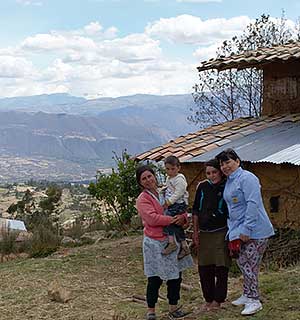 In Peru, according to the Ministry of Health (MINSA), dental caries is one of the most prevalent diseases in the population and oral cavity problems are the main cause of medical visits. In response to this problem the Peruvian State approved the Dental Residency Regulation in 2013, with the purpose of training specialists in dentistry. The model is characterized by the fact that residents carry out their full-time work in public health establishments through a contract with the state, a mechanism that has allowed many dentists to finance their graduate studies, partially closing the human resource gap for benefit of the citizens’ oral health. In this context, in 2015, the Faculty of Stomatology of the Universidad Peruana Cayetano Heredia, implemented the specialization program in Stomatological Public Health under the residency modality, to train professionals who can research, develop and manage oral health interventions at the population level with humanistic and ethical training during the two years of the program.
In Peru, according to the Ministry of Health (MINSA), dental caries is one of the most prevalent diseases in the population and oral cavity problems are the main cause of medical visits. In response to this problem the Peruvian State approved the Dental Residency Regulation in 2013, with the purpose of training specialists in dentistry. The model is characterized by the fact that residents carry out their full-time work in public health establishments through a contract with the state, a mechanism that has allowed many dentists to finance their graduate studies, partially closing the human resource gap for benefit of the citizens’ oral health. In this context, in 2015, the Faculty of Stomatology of the Universidad Peruana Cayetano Heredia, implemented the specialization program in Stomatological Public Health under the residency modality, to train professionals who can research, develop and manage oral health interventions at the population level with humanistic and ethical training during the two years of the program.
From the beginning, the Stomatological Public Health residents are part of the health system and their preparation takes place in real environments which are conducive to learning, developing projects, programs, and institutional plans. In addition, residents propose intervention policies at the local, regional, and national level. It is also important to mention that their activities are carried out under the in-service teaching modality in public services at different levels of healthcare, including the Peruvian National Direction of Oral Health. To date, 30 specialists in Stomatological Public Health have been trained, who are currently working for the public sector, including MINSA, Social Security, Ministry of Development and Social Inclusion, Ministry of Economy, and Regional and Local Governments, among others.
However, it was necessary to incorporate a professional profile formed in an in-service teaching model, implemented mainly in private institutions that perform public health and complement it with rotations in public services. Therefore, since 2020, the Faculty of Stomatology includes the regular modality; both modalities have the same learning objectives, curricular subjects and teaching targets, with spaces for discussion that enhance the comprehensive preparation with a public and private approach, beside national and international internships that perfect the experience, providing a more holistic vision of the specialty.
Finally, the specialization program in Stomatological Public Health is recognized nationally by health managers, for having a teaching staff with experience in the area and for being innovative in the teaching modality. However, on its 5th Anniversary, the challenges are as great as the efforts of its graduates to solve them. Currently, with 14 students, the objective of the Faculty of Stomatology is not being only to train scientifically competent professionals in their specialty, but also agents of change committed to improve the oral health and quality of life of Peruvians.
